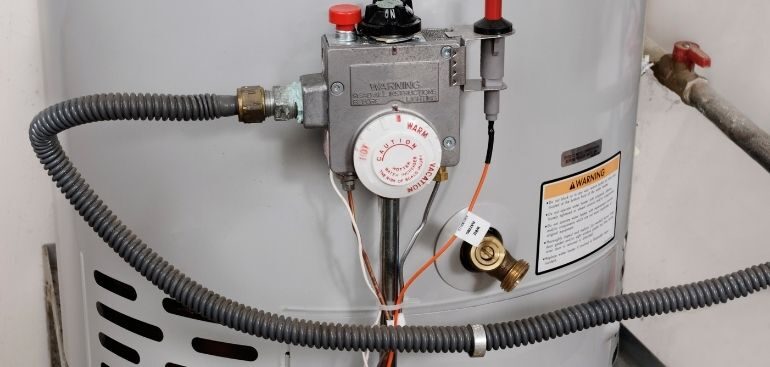Every day, your household uses gallons of hot water for showers, baths, cooking, and cleaning. You can thank your water heater for this ready supply of hot water.
But during the water-heating process, naturally occurring mineral particles present in the water settle at the bottom of the tank. When this sediment builds up, it can disrupt your hot water supply. Learn the signs of sediment buildup in your water heater.
1. “Hot” Water Comes Out Lukewarm
Unless you’ve run through a full tank of hot water, you should have hot water flowing out when you turn a hot tap. If the water is just lukewarm, you might have too much sediment in your hot water tank.
When the sediment builds up in the bottom of the tank, it creates a barrier between the heating element below the sediment layer and the water above it. This layer insulates the water and prevents it from heating effectively, so you end up with warm instead of hot water.
2. Hot Water Temperature Fluctuates
If your hot water temperature does not stay steady, it could be due to sediment at the bottom of your heater. The sediment makes it harder for your heater to heat the water consistently, so you get water that goes from tepid to too hot in a short period.
3. Low Hot Water Pressure
Compare the water pressure of your hot and cold taps. Hot water flowing at a lower pressure level is a sign of sediment buildup in your water heater. The buildup can block water from flowing out of the heater, resulting in a lower flow out of faucets and showerheads. The sediment can also accumulate in your hot water pipes and reduce the flow.
4. Rust-Colored Hot Water
If your hot water comes out a rusty color, that’s a sign you could have sediment buildup in the tank. The sediment itself can discolor the water. Alternatively, the sediment can wear down the liner inside the tank, exposing the steel underneath. When the steel corrodes, it drops rust-colored flakes into the bottom of the water heater.
5. Tapping or Sizzling Sounds From the Water Heater
Sediment can land on the heating element, and when the element heats up, it can burn the sediment. When this happens, you’ll hear popping or rumbling sounds coming from the water heater. When water under the element boils, you might hear a sizzling sound.
If you’re experiencing any of these issues, get professional help to take care of your water heater. Contact Good Water Company for fast and friendly residential water treatment services. We will fix your water heater problems so that your household can enjoy reliable hot water again.

